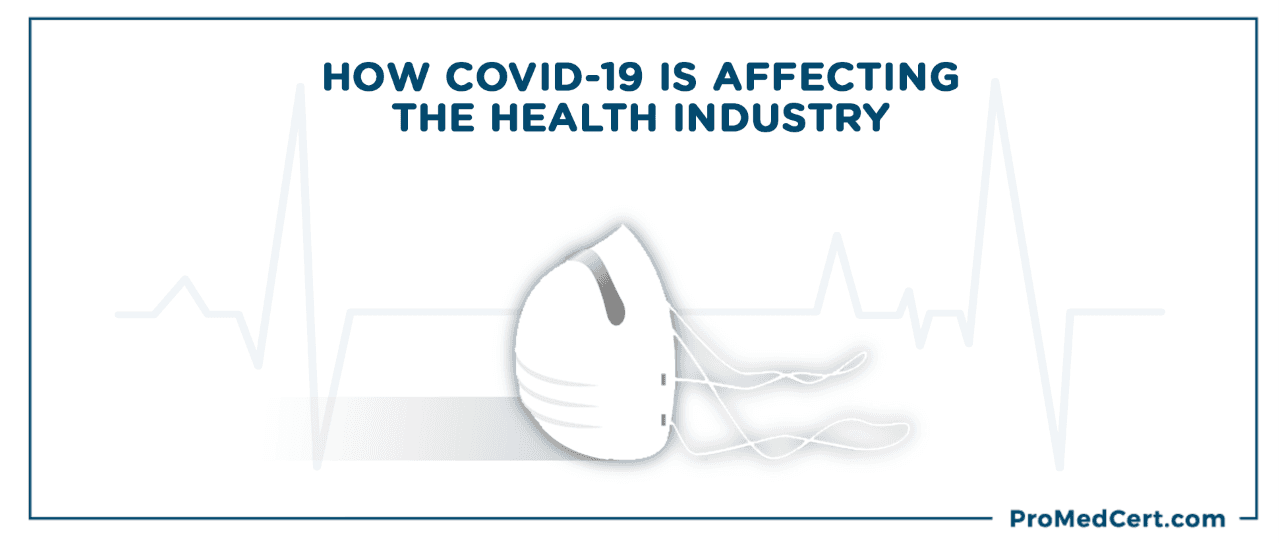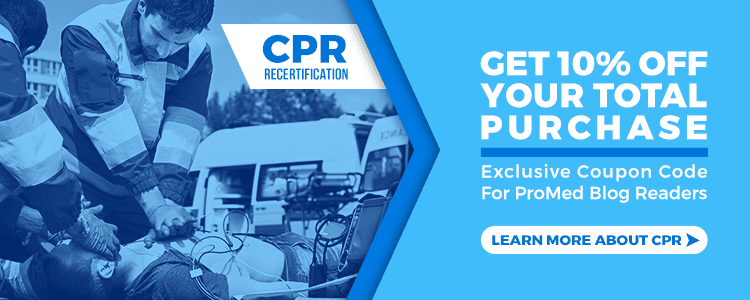How COVID-19 is Affecting the Health Industry

Around the globe, healthcare professionals are struggling to keep up with the rapidly spreading COVID-19 virus. Over time, however, the United States has seen over 562,000 cases as of April 13th — that’s 30% of the world’s 1.8 million cases. This overwhelming number of cases poses an enormous crisis to Americans, whether they come into contact with the virus or not.
It’s true; the coronavirus has sent a shockwave through the US. Businesses throughout the country are closed indefinitely and many Americans must now rely on various components of the CARES act to keep themselves financially afloat. Perhaps most consequential are the effects that COVID-19 brings to the healthcare industry.
Today, healthcare workers all over the country are fighting to save lives while risking their own. If that isn’t enough to cause those in the health industry unfathomable stress, they must also work with severely limited resources and find creative solutions to reduce the heightened risk of patient care.
Let’s take a closer look at how COVID-19 is impacting the healthcare industry and what we can do to help.
New Technological Efforts
Nearly every step of the way, COVID-19 has outpaced our efforts to contain its spread, highlighting just how technologically behind the health industry is. While schools, private sector companies, and other institutions are utilizing various digital solutions to continue operating safely, healthcare professionals are now coming face to face with the limitations of their strictly brick-and-mortar institutions.
The US healthcare system holds face-to-face interactions between patients and practitioners essential. In-person care is a necessity that isn’t likely to disappear any time soon, but it does currently leave our limited number of health workers at risk on the frontlines. Not only is this analog system harming clinicians, but it's also hastening the spread of the virus to uninfected hospital patients.
In an attempt to gain a lead on the virus, health systems are rushing to implement new technology to take on increased patient counts and keep viral spread to a minimum. Many frontline workers are now evaluating patients while maintaining a safe distance by providing patients with wearable devices, video chats, texts, and other mobile applications.
Some health systems are also utilizing AI to guide patients to the right resources and cut service wait times. Networks like the Seattle St. Joseph Health System have implemented live chatbots and smart directories to quickly distinguish high-risk COVID-19 patients from those who aren’t under any severe threat.
Financial Challenges
Unfortunately, not every US hospital has the financial means to implement these life-saving digital measures, much less continue to afford essential supplies. As previously mentioned, COVID-19 is in the process of decimating the US economy, and the health industry is not exempt. Most hospitals in heavily infected states like New York, New Jersey, and Michigan have no choice but to delay their profitable elective procedures to free up staff and make room for critical COVID-19 patients.
However necessary these cancellations are, hospitals will surely experience financial strain if they aren’t already. Hospitals will have to ride out this financial volatility. Big healthcare corporations will be able to ride this rough wave. Still, community hospitals and non-profit healthcare organizations will need to find assistance through setting up a donation system or finding a willing financial partner.
A Broken Supply Chain
Whether hospitals can afford them or not, essential medical supplies are becoming increasingly difficult to come by. As cases began to increase exponentially, families and businesses alike began panic buying. Of course, panic buying stories appeared all over the media, though most concerns were over sudden mass-interest in toilet paper. Unfortunately, toilet paper isn’t the only product being swiped off of shelves.
All over the country, businesses are buying and hoarding medical supplies in bulk and hiking up the costs. Among other items, healthcare officials are most concerned about the N95 respirator masks and portable ventilators that aren’t making their way to hospitals as they should.
On March 23, Washington, DC, announced that they would be targeting those who are keeping these essential items from getting to hospitals. Other banned hoarding items include disinfectants, medical gowns, and any other personal protective equipment (PPE). Despite the efforts of the FBI, many of these price gougers are still at-large. In New York, the epicenter of COVID-19 in the US, hospitals are calling for donations.
Healthcare Workers
Inevitably, healthcare workers are putting themselves in the direct line of fire to protect citizens from COVID-19. During the initial outbreak in China, over 3300 healthcare workers caught the virus. In the US, there are over 5,558 cases, and counting from just 12 states alone. These numbers don’t include Michigan’s, estimated 2,200 infected healthcare workers, as the state is not officially tracking infections. Health experts agree that limited access to PPE is a major cause of these alarming numbers.
Physical health isn’t the only personal concern healthcare workers hold during this crisis. This has been a challenging time for medical professionals, both mentally and emotionally. Medical staff report mental and physical exhaustion, as well as trauma associated with losing both patients and colleagues to the virus. A majority of healthcare workers also fear passing COVID-19 to their families and uninfected patients.
The Solution
The obvious answer to stopping the spread of the virus is to heed calls for social distancing and stay home whenever possible. But in order to protect those on the frontlines, we need to make sure they’re properly protected — that they have the means to afford personal protective equipment and digital solutions required to keep them and their patients safe.
That’s why ProMed is doing our part to help healthcare workers get through this crisis safely. For the entire month of April, we’re donating $50 for every course bundle or Course For Life purchase made on the ProMed Website to Direct Relief.
Direct Relief is currently working with nonprofit organizations and public health authorities across the US and the world to provide PPE and other essential medical items to COVID-19 responders.
There’s no clear answer on what the health industry will look like once this pandemic is over. It is likely that healthcare providers all over the country — and the world — will reassess and digitize a significant portion of their operations in the event that an event of this proportion ever happens again in our lifetime. Right now, all we can do is help one another the best we can and work to stop this virus together.

